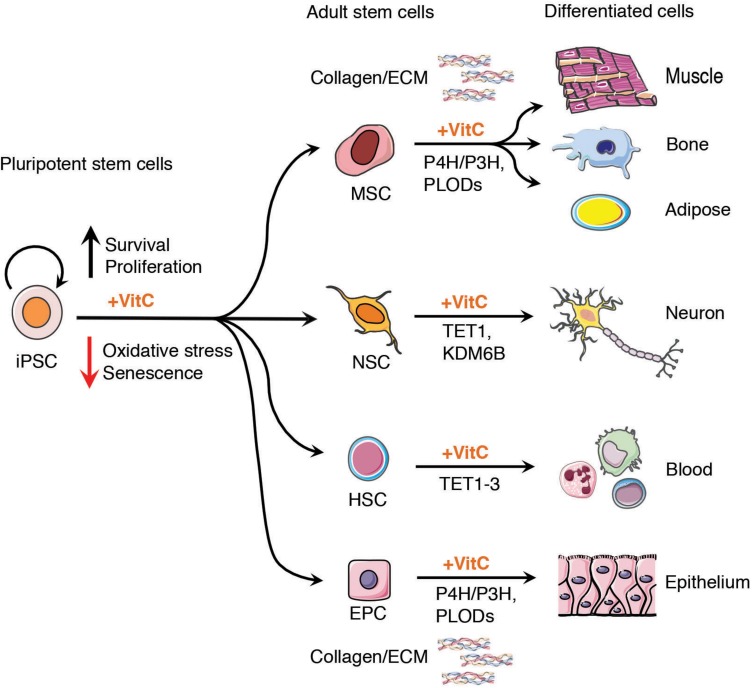FIGURE 2.
Vitamin C enhances stem cell therapeutic potential. Vitamin C maintains the proliferation and self-renewal capacity of tissue specific stem and progenitor cells derived from iPSCs in culture, including epithelial stem and progenitor cells (EPC), neural stem cells (NSC), mesenchymal stem cells (MSCs), and hematopoietic stem cells (HSCs). The addition of vitamin C to the culture medium of cells enhances the activity of α-ketoglutarate dependent dioxygenases (α-KGDDs) including Jumonji-C domain-containing histone demethylase (JHDM) such as KDM6B, ten-eleven translocation (TET1-3) proteins, prolyl Hydroxylases (P4H, P3H) and pro-collagen-lysine α-KG 5-dioxygenases (PLODs). Vitamin C may serve as a key adjuvant in preclinical models of iPSC-based regenerative medicine providing a renewable source of cells for tissue regeneration with potential to form epithelium, neurons, fat tissue (adipocytes) bone and heart muscle (cardiomyocytes), maintaining epigenetic plasticity to maximize progenitor cell differentiation capacity. The enhanced activity of collagen prolyl hydroxylases in the presence of vitamin C can also contribute to higher quality tissues for engraftment, highlighting an important non-epigenetic role of vitamin C in stem cell therapies.

